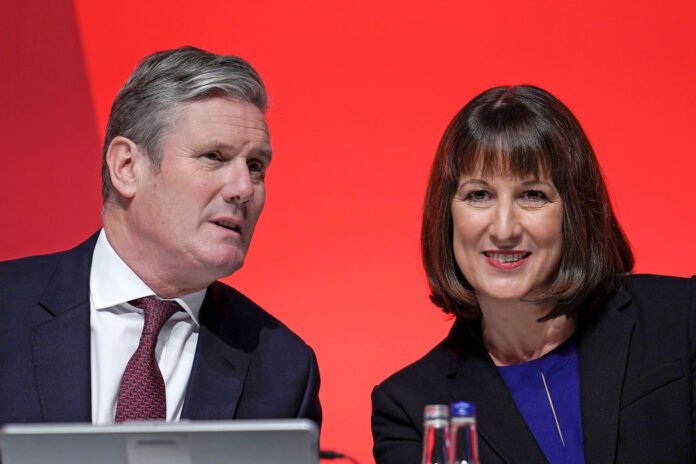Labour has backtracked on its commitment to invest £28 billion per year in green industries if elected, saying it must be “responsible” with public funds. In 2021, Labour pledged to invest £28 billion in green initiatives annually until 2030. Instead, shadow chancellor Rachel Reeves said she would increase spending gradually from a 2024 election victory, reaching £28 billion a year by 2027. She told the BBC that it was critical not to be “reckless” with spending after the Conservatives “crashed the economy.” Ms. Reeves told Radio 4’s Today program that “financial stability has to come first” after prices and interest rates rise. Inflation has risen due to factors such as the Ukraine crisis, and the Bank of England has raised interest rates, making borrowing more expensive, in an attempt to contain growing costs.
Former Prime Minister Liz Truss’ mini-budget last year, which included billions of pounds in unfunded tax cuts, shook financial markets and caused interest rates to rise even further. Labour Party unveiled an economic strategy influenced by Biden. Labour intends to establish a publicly owned renewable energy company. “To be honest I had no idea whatsoever that Conservatives would do this to our economy,” Ms Reeves added.“We will make the necessary investment. But we must do so in a responsible manner.” When asked how much investment would be made in the first year of a Labour government, Ms. Reeves refused to commit to a figure, noting that the economic backdrop would not be evident until later. Ms. Reeves said in announcing the party’s Green Prosperity Plan in 2021 that the £28 billion would be borrowed and spent on projects such as offshore wind farms and manufacturing batteries for electric vehicles. Since then, the economic landscape has shifted dramatically, with interest rates and borrowing prices skyrocketing.
Labour wants to be regarded as economically credible, and there have been private doubts raised about whether the £28 billion investment is affordable in the current environment. According to a senior Conservative source, Labour’s proposal was unsurprisingly whittled down.”The pledge was made at a time when interest rates were at rock bottom,” they explained.”Borrowing £28 billion every year for a decade would fuel inflation and force [the Bank of England] to raise interest rates even more.” It’s the pinnacle of recklessness.” The source raises concerns regarding the pledge, highlighting existing issues and potential deadweight costs where private sector investments would have naturally occurred.
Criticizing the PM
Ms. Reeves also criticized Prime Minister Rishi Sunak’s agreement with the US during his visit to Washington this week. Plans for a comprehensive free trade deal have been scrapped, but new suggestions include giving UK electric car companies access to US green tax credits and subsidies. Ms. Reeves, who visited the United States last month, expressed “shock” that Mr. Sunak had returned with “no industrial plan for Britain.”
She has stated that Labour is influenced by US President Joe Biden’s plan to combat inflation and create jobs, which includes a massive package of subsidies and tax incentives for green businesses. However, she stated that her “secureonomics” policy will be “built on the rock of financial stability and economic security,” with rigorous borrowing limitations. Labour has also pledged to establish a publicly owned renewable energy company in order to create jobs and strengthen the country’s energy security.
Despite union fears, the party committed last week to ban new licenses for oil and gas extraction in the UK.













